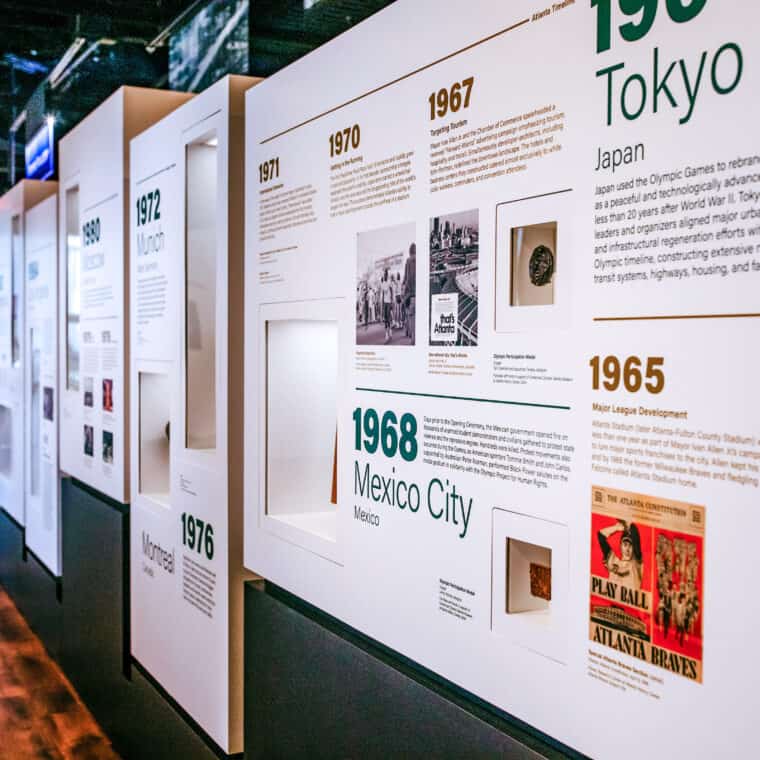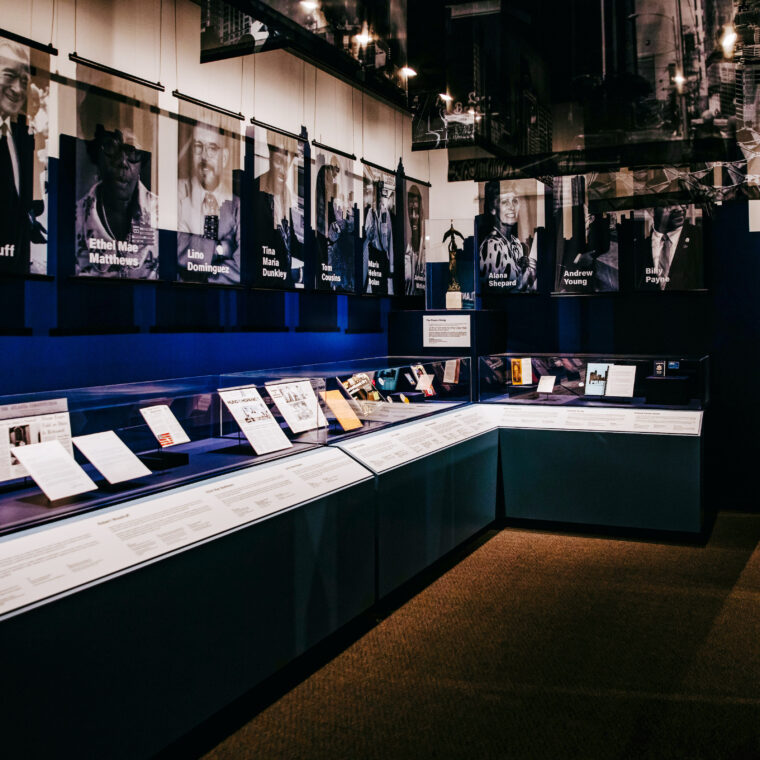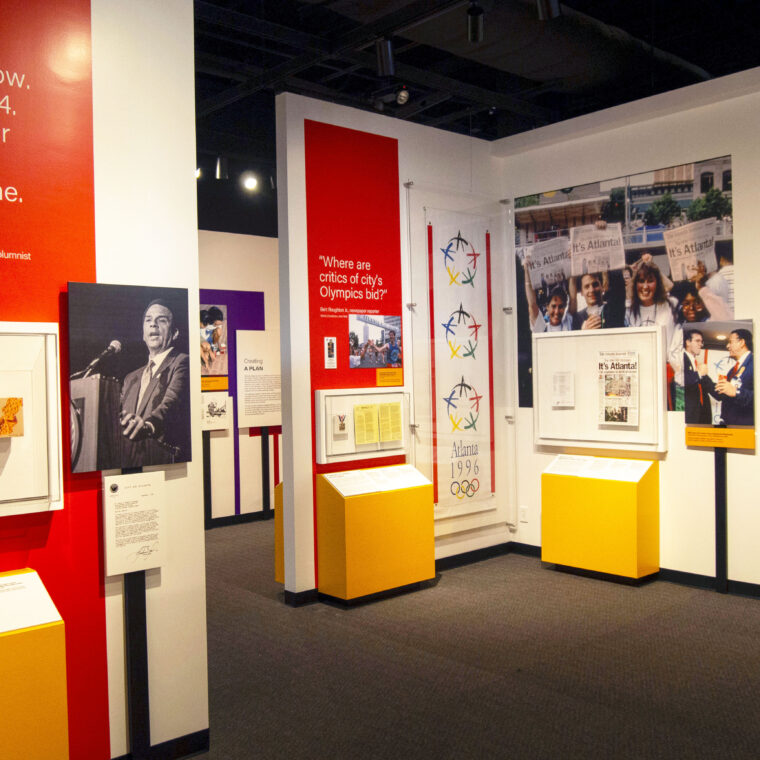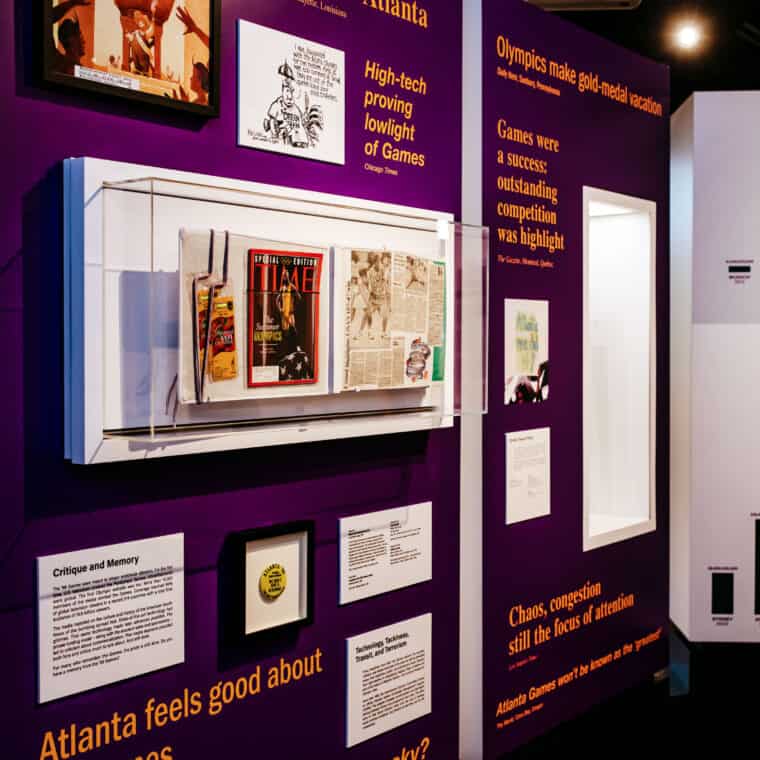On view at Atlanta History Center.
In 1996, Atlanta hosted the Centennial Olympic Games and the tenth Paralympic Games.
Nearly thirty years later, this signature exhibition considers the impact of the Games on the city and our lives. The Games mean something different to everyone, including individuals involved in preparations, people living near venues, competitors, and fans. The exhibition places the recent past within the context of Atlanta’s longer history of reinvention and growth initiatives, prompting visitors to think about how we can change the places in which we live.
Atlanta ’96 tells new stories and expands on memories of the city’s Olympic and Paralympic history. Drawn from Atlanta History Center’s distinctive collections, the exhibition creates a visitor experience filled with iconic and unexpected objects. It includes memorabilia from athletes and fans, archival materials that look behind the scenes at the experience of a host city, vintage video footage, and specially developed touchless interactive activities. The exhibition invites visitors to examine the people, events, and decisions that shaped the Games as well as the Atlanta we know today.
Featured Image Izzy, mascot of the 1996 Olympic Games, Atlanta Committee for the Olympic Games, circa 1996. Gift of Georgia Amateur Athletic Foundation, 2002.
Atlanta '96: Shaping an Olympic and Paralympic City
Click the video and learn more about the making of this exhibition.
Next: 1 Collections.
After the Games ended, Atlanta History Center was designated as the repository for the collections of the Georgia Amateur Athletic Foundation, the non-profit behind the organizing committee of the 1996 Olympic bid and Games














